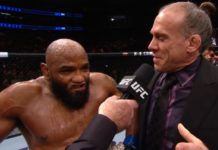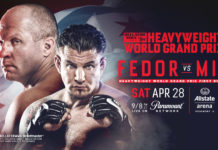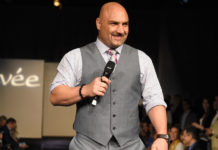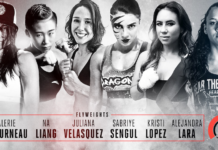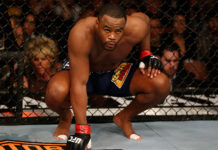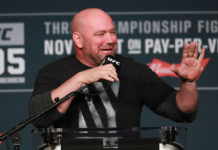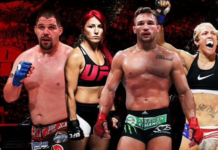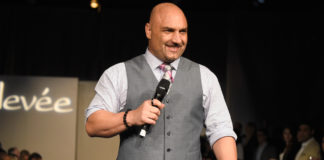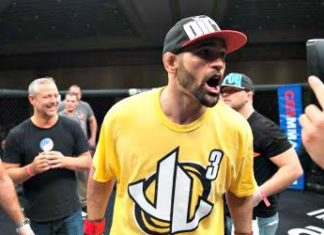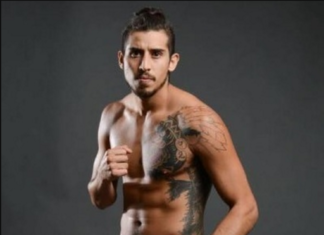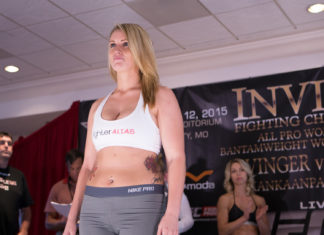By: Teddy Montemayor & John Bieschke
On December 2, 2014 it was revealed that Reebok would become the sole fight apparel provider and official sponsor of the Ultimate Fighting Championship (UFC). The UFC announced a deal would go into effect on July 6, 2015 and under the terms of the agreement Reebok would pay the UFC $70 million over a six-year period and in exchange, each fighter on the UFC roster would be required to wear Reebok attire for all fight week activities. These pre-fight activities include weigh-ins, press conferences, and for the fight itself. Reebok is the only clothing brand allowed on camera for those fight week events — some fighters (like Like Rockhold) have even had to tape up their shirts or shoes to cover up non-Reebok logos.
The UFC President, Dana White, along with former UFC owner Lorenzo Fertitta, argued that the Reebok deal would be the one that put them in competition with other major leagues like the NFL. Whether they considered it or not, the loss of individual sponsors would cause a ripple effect that damaged relations with all fighters.
Since fighters under contract with the UFC are unable to be sponsored by companies other than Reebok for the duration of the six-year agreement, the number two promotion, Bellator MMA, has moved in recent years to scoop up some of the hottest free agents in mixed martial arts. Recent Bellator signees include former UFC employees Matt Mitrione, Benson Henderson, Rory MacDonald, and Chael Sonnen.
Mitrione spoke with BloodyElbow reporter Steph Daniels about what the Reebok deal would mean to him financially back in 2015, when he was still a UFC employee.
“I’ve got a sponsor that’s paying me $30 grand a fight, and I’m gonna lose that sponsor. That’s not good business, and there’s nothing I can do about that,” Mitrione said. “From what I’m being told, the new sponsorship deal with Reebok is going to be way less than the sponsor I’m gonna lose.”
The Current Reebok/UFC Fight Sponsorship Pay Scale:
Fighters being able to make deals and align themselves with companies that they can relate with was a big aspect that attracted business minded fighters. It makes sense for Brock Lesnar to eat beef jerky and for Donald Cerrone to drink Budweiser. These mixed martial artists were able to play to their personas and take ahold of their own financial stability — clearly something that played well to the notion of an individual sport.
It was simple deal; fighters wear their sponsors logos, fight, and then get paid. In the age of social media, they were able to capitalize on their Twitter’s and Instagram’s as well to deepen their pockets. All of this came to a halt when the Reebok deal came into effect.
The fallout between the company and its employees, the fighters, would lead many to publicly speak out against the Reebok deal on the social media. Longtime cutman ‘Stitch’ Duran even claims he was fired by the Ultimate Fighting Championship in 2015 because he decided to speak his mind about the Reebok deal.
@daej81 You will be the first to know that the UFC just let me go because I spoke out about the Reebok deal. Got to look for a new job!
— Jacob Stitch Duran (@StitchDuran) July 21, 2015
“Dana has definitely changed,” Duran told MMAFighting last year. “Now it’s all about the economics. It used to be a fighter friendly environment.”
This is where Bellator came in, as the promotion was looking to grow. The Reebok deal seemed like a dream too good to be true. ‘Stitch’ leaving the UFC was just icing on the cake. With many unsatisfied fighters looking for a way to keep competing while simultaneously not losing out on sponsorship money, Bellator became the perfect option.
Light heavyweight veteran Phil Davis was one of the first to jump from the UFC to Bellator, because of the latter’s Viacom-backed contract that allows third party sponsorship. Simply put, Bellator proved to be the more lucrative option. Other fighters quickly followed suit once they became free agents.
One common thread ties all these departures together — money. These fighters want to get paid more, while the UFC simply want the fighters who draw in a crowd. It’s a shame when solid warriors who can produce five-round wars get picked over an Irish loud mouth (McGregor) who beats his opponents mentally before they walk into the octagon. Not to take anything away from Conor McGregor, but we need more fights like Dominick Cruz vs. Cody Garbrandt or Anderson Silva vs. Chael Sonnen — fights where back-and-forth promos sold the show and the fights were enhanced because of real drama between the two combatants.
Unfortunately, the UFC has begun to focus on “big names/draws”. That same mentality recently brought a steroid induced Brock Lesnar to save to the floundering UFC 200 card, a heavy media bias towards Ronda Rousey during the build up to UFC 207, and the same mentality that entertains the idea of a Tyron Woodley vs. Michael Bisping champion vs. champion match — something that doesn’t make any sense because each man has a handful of credible challengers ready to fight for the title.
Rory MacDonald was the most recent high-profile UFC veteran to sign with Bellator, and ‘The Red King’ also left because he was being poorly compensated for his fights. Back at UFC 189, MacDonald fought then-UFC Welterweight Champion Robbie Lawler in the 2015 FOTY, and shattered his nose in the process. His reward for the five-round war over the UFC championship was just $59,000 from the UFC and $30,000 from Reebok — $251,000 less than Lawler’s combined earnings for the bout.
“I was excited about the whole thing (Bellator Contract) because it was time that I get paid, and I knew what I was worth,” MacDonald said on the MMA Hour.
With each one of these athletes mentioning the Reebok deal as one of the main reasons for their departure, it’s just sad to see a sport that was once synonymous with the love of battle shift its focus to executives’ paychecks. It almost goes without saying but it’s still worth mentioning — fighters should be properly compensated by fight promoters.
Should the UFC continue down this path of losing disgruntled employees to the competition, there may come a day when they have to once again resort to freak show fights to draw a PPV audience — something that would serve as a dark age for the sport of mixed martial arts.
@MMA_Newsline contributor Teddy Montemayor can be followed on Twitter at: @mmacomedypage





